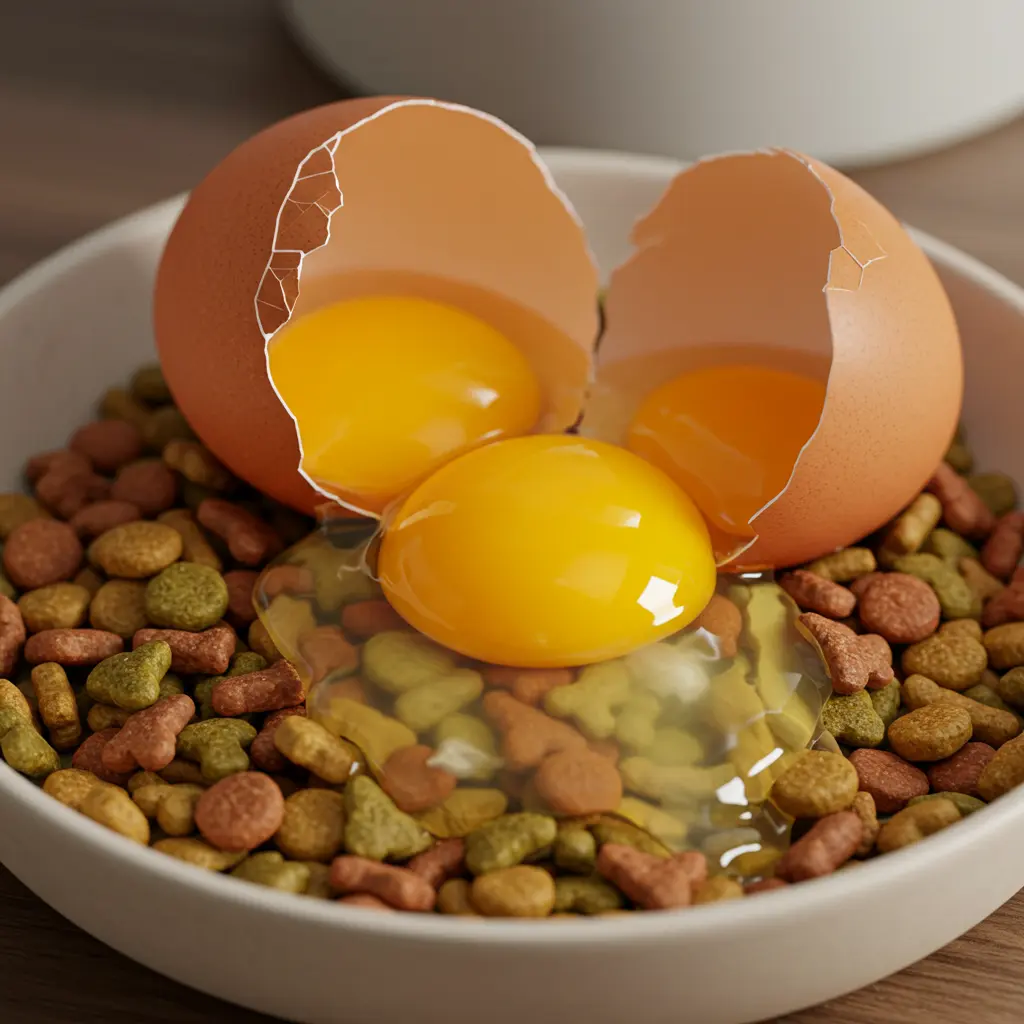Your Question is [cracked raw egg over dog food]. I’ll build the full article in a structured format, starting with your Direct Answer, followed by an engaging, professional breakdown of:
Nutritional Cracked Raw Egg Over Dog Food Benefits
How to Safely Serve Raw Eggs for Dogs
Eggshells: Hidden Gem or Hazard?
Raw vs. Cooked: Which is Better for Your Pup?
Common Concerns & Vet Advice
Creative Ways to Incorporate Eggs
Raw Egg Dog Myths Debunked
How Often Should You Feed Eggs?
Best Practices According to Veterinarians & Canine Nutritionists
Final Verdict: Should You Crack That Egg?
Let’s begin. 👇
Cracked Raw Egg Over Dog Food: Nutritional Goldmine or Risky Trend?
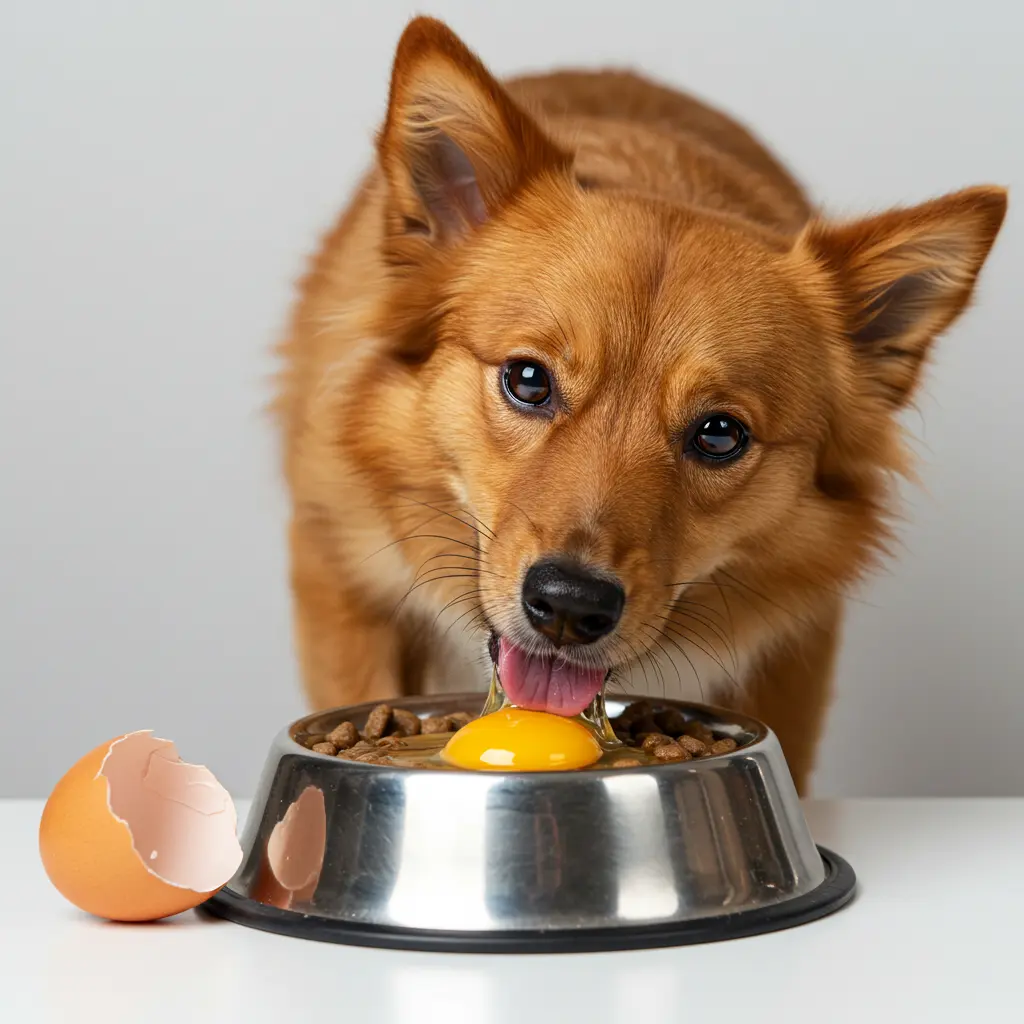
Cracking a raw egg over your dog’s food is a popular practice among pet owners to enhance a meal’s nutrition and flavor. Raw Eggs for Dogs are a great source of protein, vitamins, and fatty acids that can benefit your dog’s coat, skin, and overall health. Just be sure to follow some safety tips:
Freshness is key: Always use fresh, clean eggs to avoid the risk of bacterial contamination like salmonella.
Shell awareness: If adding eggshells (a good source of calcium), ensure they’re crushed finely to avoid any sharp edges.
Moderation matters: While eggs dogs are nutritious, they should complement your dog’s balanced diet and not overtake it.
Would you like me to dive deeper into the cracked raw egg over dog food benefits or share some creative twists for incorporating eggs into your dog’s meals? Let’s crack into it!
Why Dog Owners Are Cracking Eggs: What’s the Buzz?
From Instagram influencers showing off gourmet dog meals to Reddit threads buzzing with raw feeding tips, one thing’s clear: cracking raw eggs over dog food is trending. But this isn’t just a social media flex—it’s backed by centuries of instinctual feeding and modern nutritional science.
Eggs are one of the most complete sources of nutrition in the animal kingdom. When you think about it, an egg contains everything needed to develop life—it’s a powerhouse of protein, essential fats, vitamins, and minerals.
But does this natural food translate well into a dog’s modern diet? Let’s break it down.
The Nutritional Power of Raw Eggs for Dogs
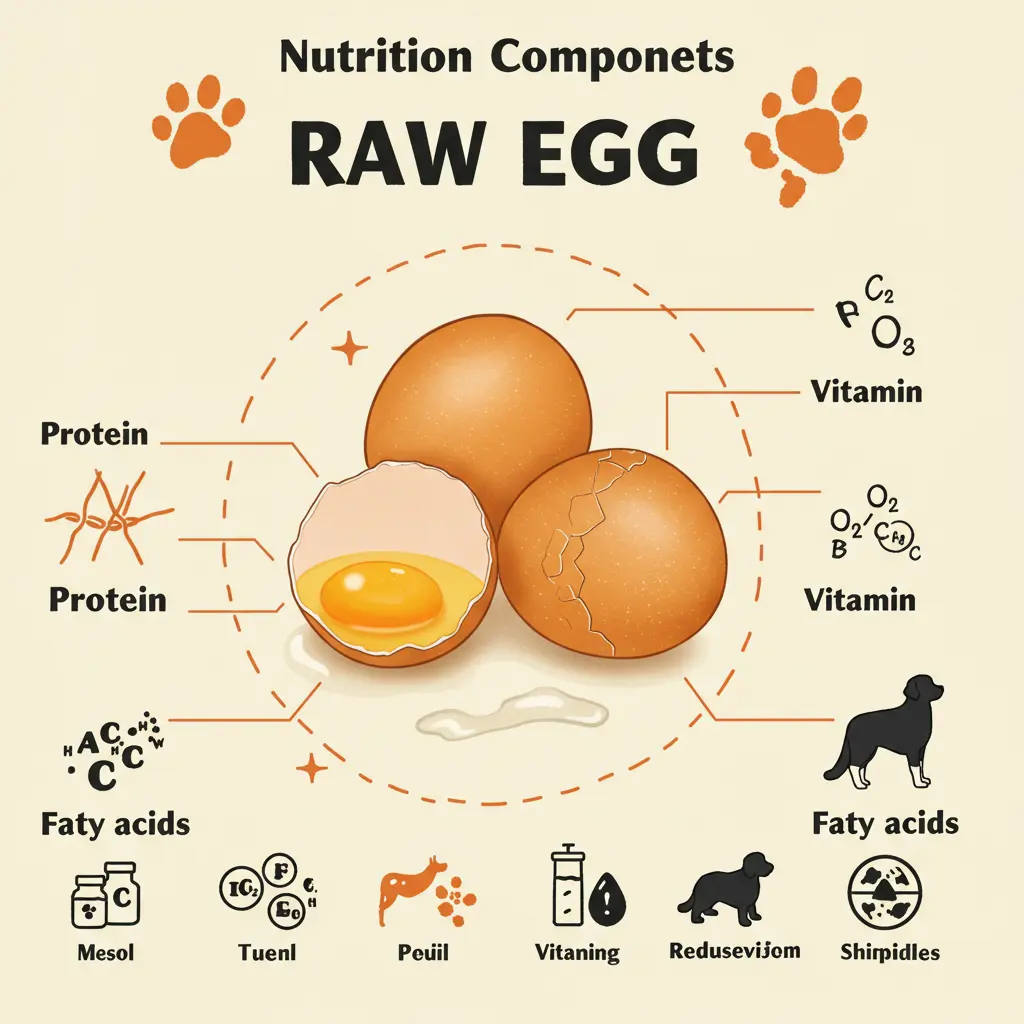
Raw eggs aren’t just “okay” for dogs—they’re incredibly beneficial when served safely. Here’s a nutrient snapshot of what a raw egg brings to the bowl:
| Nutrient | Function in Dogs | Found in |
|---|---|---|
| Protein | Builds muscles, repairs tissue, supports immune system | Egg whites & yolk |
| Omega-3 & Omega-6 fatty acids | Supports skin health, shiny coat, reduces inflammation | Yolk |
| Vitamin A | Supports vision, immune system, organ function | Yolk |
| Vitamin B12 | Aids in energy production and nervous system health | Yolk |
| Riboflavin (B2) | Essential for energy metabolism | Egg white |
| Selenium | Acts as an antioxidant | Whole egg Dog |
| Iron | Prevents anemia, supports blood health | Yolk |
| Choline | Crucial for brain and liver function | Yolk |
| Biotin | Promotes healthy skin and coat | Yolk (but more on this later) |
| Calcium (if shells are included) | Bone strength, heart function | Crushed shell |
Pretty impressive, right?
The Safety Factor: Is Raw Egg Safe for Dogs?
Salmonella: Real Risk or Overblown Fear?
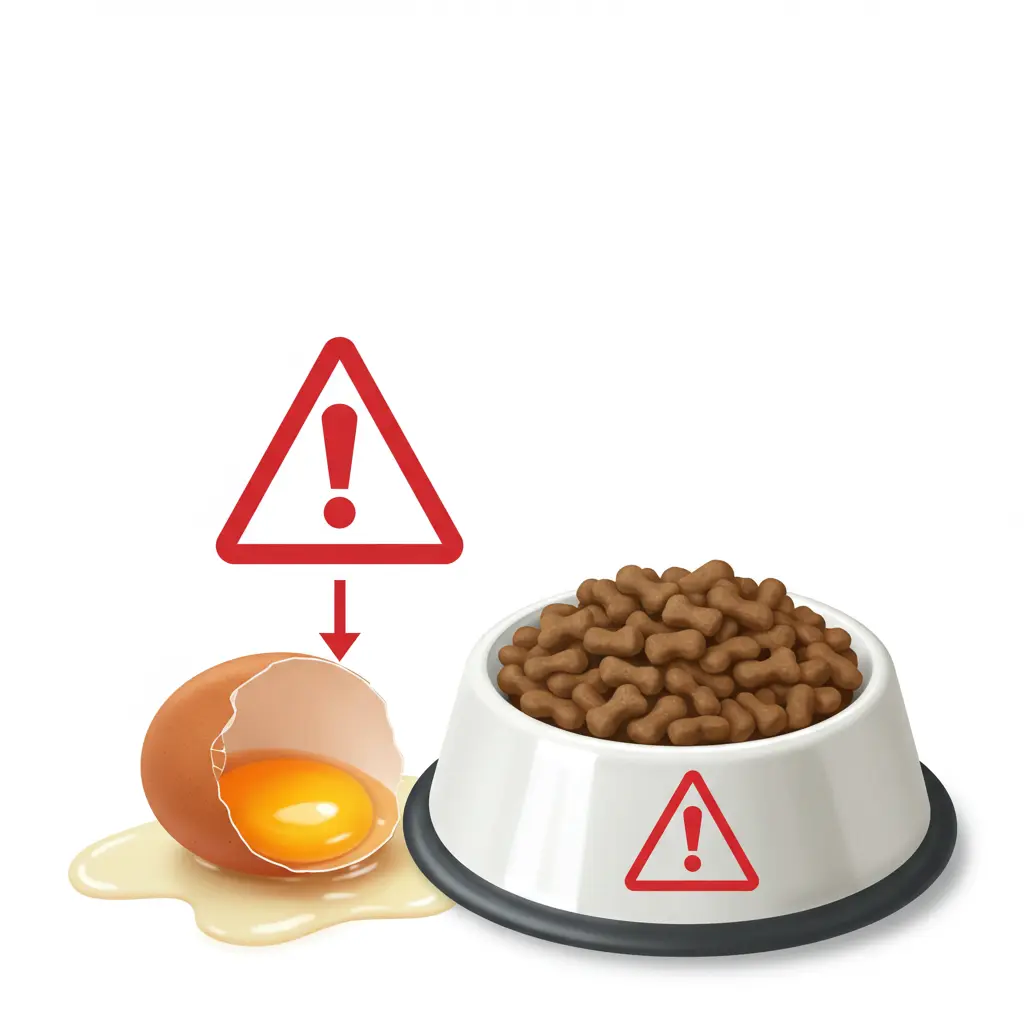
One of the biggest concerns pet parents have is salmonella contamination. And rightfully so—this bacterium can make both humans and dogs sick.
However, according to veterinarians and raw feeding advocates, the risk is extremely low if you use clean, fresh, properly stored eggs dogs. In fact, dogs have a shorter digestive tract and more acidic stomachs than humans, which makes it harder for harmful bacteria to survive.
Tips to reduce risk:[Cracked Egg in Dog Food]
Buy organic, pasture-raised eggs when possible.
Inspect eggshells—avoid cracked or dirty ones.
Always refrigerate eggs and use them before the expiration date.
Don’t feed your dog raw egg daily if your dog has a weakened immune system.
Eggshells: Calcium Goldmine or Crunchy Concern?
Eggshells aren’t just waste—they’re a natural calcium supplement for dogs. But don’t toss a whole shell in your dog’s bowl and call it a day.
Here’s how to safely feed eggshells:
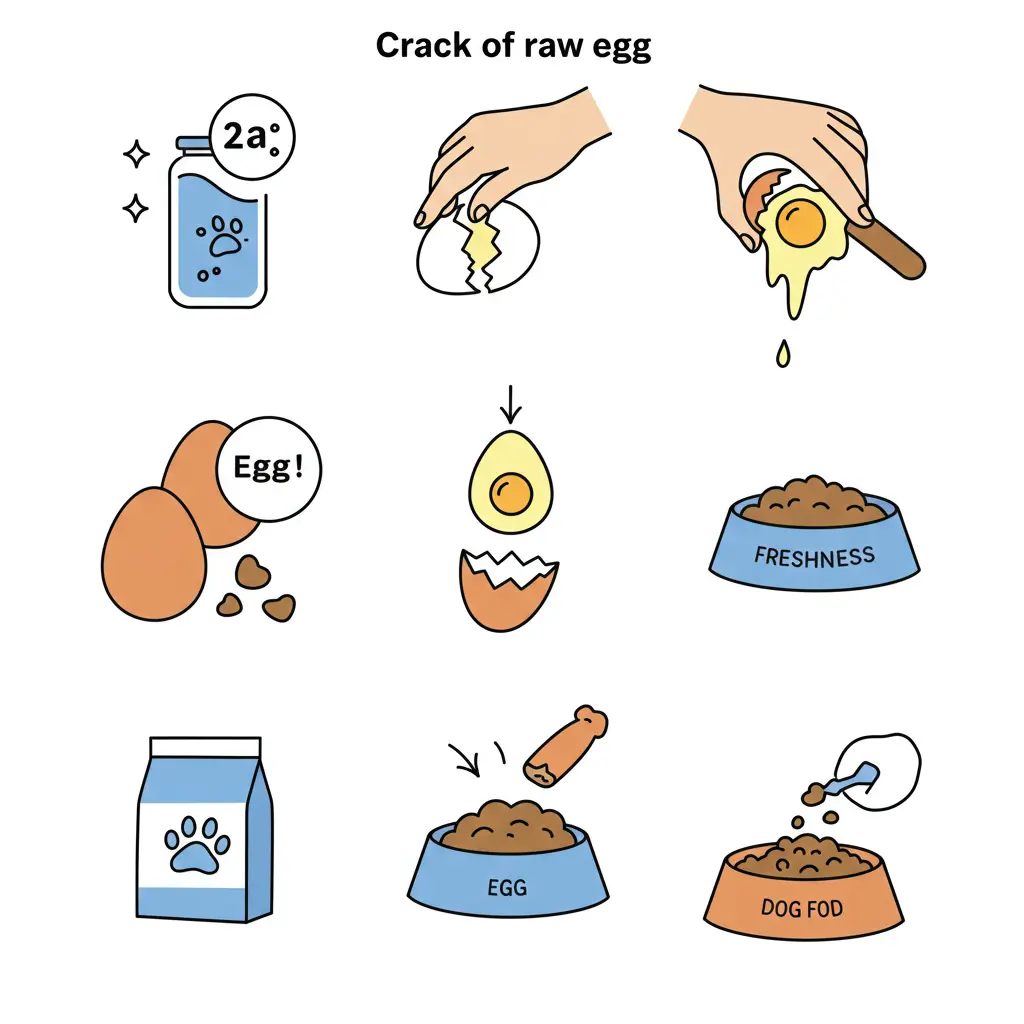
Rinse thoroughly to remove bacteria.
Boil and dry (optional but extra safe).
Crush into a fine powder using a blender or mortar & pestle.
Sprinkle lightly over food (½ tsp for medium dogs).
Benefits of calcium from eggshells:
[Cracked Raw Egg Over Dog Food For Puppy] Supports bone development, especially in puppies.
Helps balance phosphorus levels in raw diets.
Aids muscle function and nerve signaling.
Note: Don’t overdo it—too much calcium can cause bone issues, particularly in large-breed puppies.
Raw vs. Cooked Eggs: What’s Better for Dogs?
This is where it gets egg-citing. Let’s crack the debate wide open.
Pros of Raw Eggs
Full nutrient profile intact (no heat damage)
Better source of digestible fats and vitamins
Natural and unprocessed
Cons of Raw Eggs
Potential for salmonella (minimized with fresh eggs)
Avidin in raw whites can interfere with biotin absorption (more on this below)
Pros of Cooked Eggs
Avidin is neutralized by heat
No bacterial risks
Still nutritious, though slightly reduced
Verdict:
For healthy adult dogs, raw eggs (with safety precautions) are a nutritional win.
For puppies, seniors, or immunocompromised dogs, opt for soft-boiled or scrambled (no seasoning, please!).
Biotin Myth: Does Raw Egg Dog Deplete It?
Let’s squash the biggest myth circulating the dog parent forums.
Raw egg whites contain avidin, a compound that can block biotin absorption. Biotin is important for healthy skin, coat, and nails.
BUT—and this is a big but—the yolk contains more than enough biotin to balance things out. Plus, unless you’re feeding multiple raw eggs dogs daily, biotin deficiency is highly unlikely.
TL;DR:One raw egg a few times a week is not going to cause a deficiency—especially if it includes the yolk.
Vet-Approved Guidelines: How Often Can I Feed Eggs?
Veterinarians and canine nutritionists generally agree on these safe guidelines:
| Dog Size | Egg Frequency |
|---|---|
| Small (<20 lbs) | 1 raw egg, 1–2 times/week |
| Medium (20–50 lbs) | 1 raw egg, 2–3 times/week |
| Large (50+ lbs) | 1 raw egg, 3–4 times/week |
| Giant Breeds | Up to 1 egg/day (if part of a balanced diet) |
Don’t feed eggs as a replacement for meals—think of them as a topper or occasional supplement.
Creative Twists: How to Serve Raw Eggs to Dogs
Tired of the same old egg-on-kibble routine? Let’s spice it up—doggo style.
1. Egg & Sardine Bowl
Raw egg + a small can of sardines (in water)
Add steamed veggies for fiber
Omega-3 overload = happy joints and shiny coat
2. Raw Egg Over BARF Meal
Perfect addition to a raw-fed dog’s bowl
Adds flavor and nutrients
Mix with crushed bone powder for balance
3. Egg Popsicles (Summer Treat!)
Blend raw egg, plain Greek yogurt & blueberries
Pour into molds and freeze
Great for teething pups or hot days
4. Egg Over Baked Sweet Potato
Adds protein to a veggie-based bowl
Tasty + digestible = win-win
Frequently Most Common (FAQs) about Cracked Egg in Dog Food?
Q1. Is it safe to crack a raw egg over dog food?
Ans. Yes, it is generally safe to crack a raw egg over your dog’s food—as long as you’re using fresh, clean, high-quality eggs. Eggs are rich in protein, healthy fats, and essential vitamins that can support your dog’s overall health. However, it’s important to follow safety tips to reduce any risk of salmonella. Avoid using cracked or dirty eggs, and always store eggs in the refrigerator.
Q2. How often can I give my dog raw eggs?
Ans. You can give your dog raw eggs 1 to 3 times per week, depending on their size and overall diet. Small dogs can have one egg once or twice a week, while large breeds may handle up to four eggs weekly. Raw Eggs Dogs should complement your dog’s existing nutrition—not replace it.
Q3. Can I feed my dog eggshells, too?
Ans. Yes, dogs can safely eat eggshells, but only if they’re crushed finely into powder. Eggshells are a great natural source of calcium and minerals, especially for raw-fed dogs. Always rinse and dry the shells before grinding, and sprinkle a small amount over meals for added bone and dental support.
Q4. Are raw eggs or cooked eggs better for dogs?
Ans. Both raw and cooked eggs are healthy for dogs, but raw eggs offer a more complete nutrient profile if served safely. Raw eggs retain more natural enzymes and vitamins, while cooking can destroy some of those nutrients. However, cooked eggs eliminate the risk of salmonella and may be better for puppies, senior dogs, or dogs with weak immune systems.
Q5. Can raw eggs cause biotin deficiency in dogs?
Ans. No, a raw egg here and there won’t cause biotin deficiency in dogs. Although raw egg whites contain avidin (which binds to biotin), the yolks contain high levels of biotin, counteracting this effect. Unless your dog is consuming multiple raw eggs daily for a long period, there’s no need to worry.
Final Word: Cracked Raw Egg Over Dog Food?
If you’re looking to boost your dog’s health, enhance mealtime, and get that extra tail wag, cracking a raw egg is a simple, safe, and nutritious way to do it.
Just remember:
Quality eggs = happy belly
Eggshells = optional, but beneficial
Moderation = key
Vet input = always wise
Whether you’re a raw feeding purist or just want to spoil your pup with nature’s multivitamin—raw eggs are a fantastic addition to your dog’s diet when served responsibly.
Want a custom feeding guide for your dog’s age, breed, and diet plan? Drop a comment in the comments, and let’s chat!

